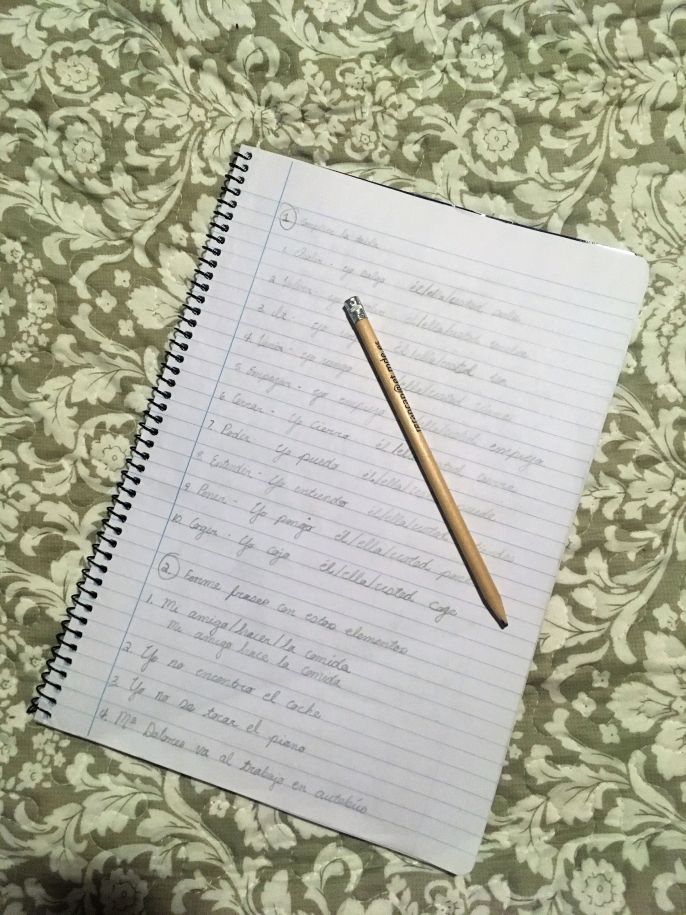Forgetting a Language You Already Know
I have studied Spanish for a total of ten years. Three of those years was in high school and college, and the other seven via Duolingo, Wlingua, and finding the rare opportunity to speak with native speakers in southern Missouri. I tested into a B1 level in May, but since coming to Spain I have realized that I am an A2 at the very best. This realization has not only been hard on my ego, (because after a decade of study I should be able to ask for directions without strugging for pete's sake,) but I am navigating a strange experience of forgetting words and grammar structure I already know as I am thinking and using them. One hour I will be having a fairly complex conversation with a friend, and the next I will not be able to understand a word the bus driver is telling me. Sometimes it feels like I am a toddler listening to her mother's voice; it sounds so familiar and I know that I should know what is being said, but I have absolutely no clue. I know why this is happening to me, however. There are a few reasons.
1. Everyone speaks very quickly here. Of course they do. It's their native language. For many people in Almeria, it is their only language. Also, the accent is difficult to understand for someone who has primarily studied Latin American Spanish.
2. I have had very little practice with speaking and listening. I am better at reading and writing. If you have ever studied a second language, you know that these four skills actually require using four different parts of your brain. I have primarily been reading and writing in Spanish since my last class and have spoken and listened very little. Oops.
3. I am stressed out because I moved to a new continent. There is an actual multi-step psychological process you go through when you move abroad. I was not fully aware of this, but it is in fact a real thing. Forgetting the gobs of Spanish phrases, formulas, and vocabulary that I had worked hard for is a classic symptom of phase 2, culture shock. Be prepared for this if you are moving abroad. It is totally normal. Every other auxiliar I know is going though it in one way or the other.
As a whole, forgetting Spanish is extremely frustrating, but I know that I can get past it. There are days when I can't even speak English coherently, so this is nothing out of the ordinary or impossible to overcome. I have started taking private Spanish lessons, I drill myself every day, and of course I speak with people on the street (I more or less have to.) Next problem, please!
Related Posts
The Ultimate Café Guide to Madrid
Looking for the best coffee shops in Madrid? This guide covers top spots for specialty coffee, matcha, delicious brunch, and cozy vibes—perfect for anyone craving quality drinks and Instagram-worthy interiors. Whether you're a local or visiting, these must-visit cafés offer the ultimate Madrid coffee experience.
Not Just for Business: Why Your Trip Needs a Mission Statement
If you're seeking deeper meaning and fulfillment in your travels, creating a personal travel mission statement can help guide your journeys with purpose. By aligning your trips with your values, goals, and vision for growth, you transform travel from simply visiting places into a powerful experience of connection, learning, and inspiration.
Wish You Were Here—Wish I Were There
Not a day goes by that I’m not deeply grateful for the incredible experience of living in Spain. From weekend adventures to the thrill of navigating a new culture, it’s... keep reading

